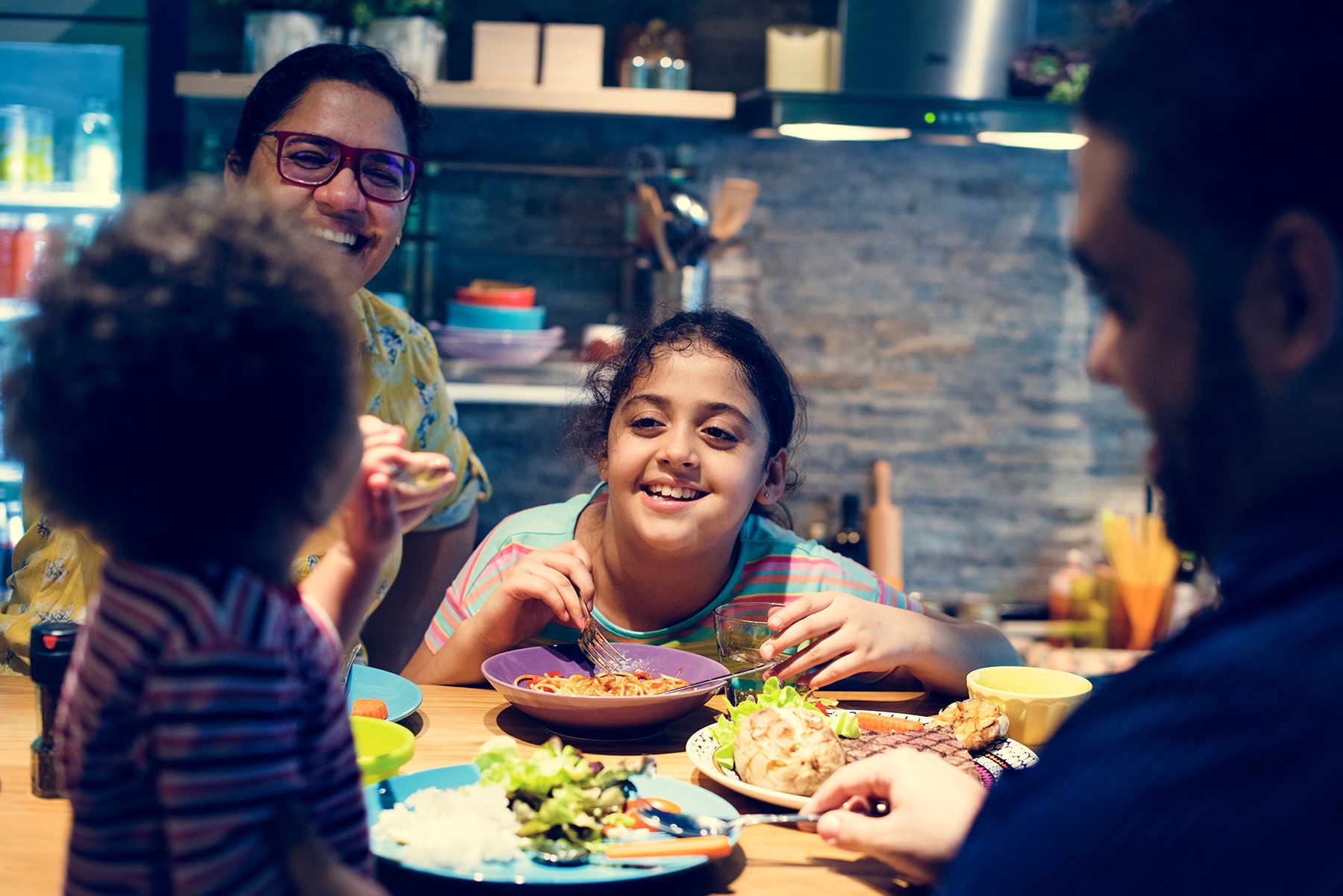My dad would often say, “My family — we put ‘fun’ in dysFUNction.” And, he’s right. We’re a family made up of all of the same stuff that has affected most families. We’ve experienced divorce, unplanned pregnancy, struggle with substance abuse and a few yell-fests that could have broken up our family.
Yes, mine is far from a perfect family. But we are still a faithful family, in that we don’t let our dysfunctions prevent us coming together for a regular family meal — and not just during the holidays. So, dysfunctional or not, I can still say proudly: We ARE family!
Much has been written about self-help for individuals. But very little has been written about self-care and self-help for a family unit. Why? Because it’s easier to just help yourself than to see the family as a single and cooperative unit — although composed of many parts and personalities. Most people don’t see themselves as a unit — that is, a community.
Family meals can help save the human family!
While I don’t propose to be an expert in the psychology of a family, especially as a celibate priest, I can say that after working with and interacting with healthy families from around the country and the world, I’ve discovered the one thing that determines family-unit connection: the regular and intentional family meal.
Regular
Notice, I did not say “one” family meal can save us. Even Jesus’ Last Supper, the meal of salvation, was a culmination of meals eaten with saints and sinners. Regular family meals lead to a healthy family unit. If not, we could illogically say that going to the gym only once a year makes a healthy person. And Catholics love repetition and regularity, such as the repeated prayers at Mass, going to the same Mass, regularly celebrating anniversaries and feast days or hearing and saying the prayers still recited from our own childhood.
But we also can avoid the strongly cautioned repetition of the Pharisees by putting our hearts into it. A regularly repeated meal, participated in from the heart, subconsciously communicates the message, “I love you enough that I want to see you, share experiences with you, feed you and be fed by you … regularly.” But what does putting our hearts into it mean? It means intentionality.
Intentional
Every action begins with intentions, such as doing something challenging — like slowing down, scheduling our business around spending time with people who matter most to us. If we aren’t intentional with family meals, we may easily replace that intimate experience with extra-curricular activities that don’t feed us or bring us together. What would it look like if we seriously ask ourselves, “What do we intentionally do to show our family that we love them?” Well, consider what Jesus did. He ate with people!
For the almost 20 years of my priesthood, I’ve tried to remind families of St. Teresa of Calcutta’s inspired method to holiness — small and simple acts, with great love! — through Plating Grace.
How? Eat together. Take time to share just one out of 24 hours together, nourishing loved ones with food prepared lovingly and satisfying hungry hearts and souls with your presence. It’s both simple and incredibly challenging. It takes regular, intentional, and even heroic effort at times. The evil one doesn’t want you to have family unity — that is, community. He throws at us busyness and schedule complications with obstacles and excuses, while our family starves. It takes a supper hero, not a superhero, to save our family — and God’s family!
Father Leo Patalinghug is a popular television and radio host, an award-winning cook and founder of Plating Grace and The Table Foundation. His newest book is “Saving the Family” (Sophia Institute Press).



